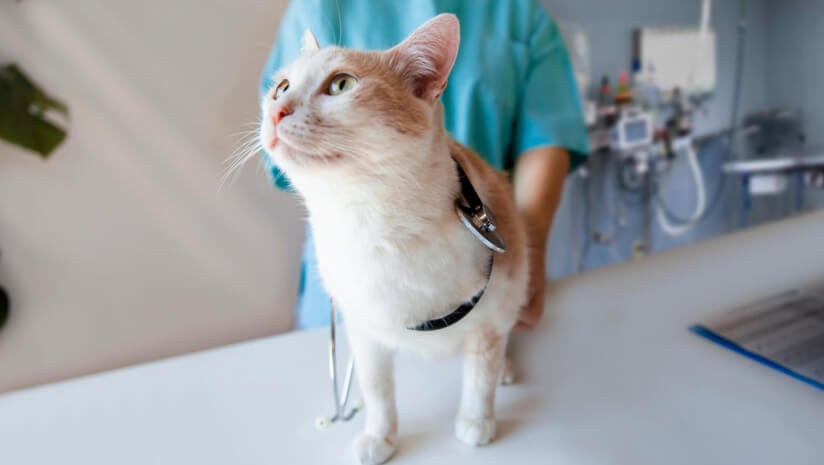But how much oversight is there of pet supplements? And what information do veterinarians rely on when recommending supplements?
In September, the New York Times reported that eroding trust in veterinarians has led pet owners to take their pet’s health and wellness into their own hands, designing supplement and diet regimens to support their pet’s long-term health, sometimes without veterinary guidance.
Bill Bookout, president of the National Animal Supplement Council (NASC), a non-profit trade association that promotes the health and well-being of companion animals and horses, said that the perception of general consumer distrust of veterinarians is unfounded.
“I think based on safe history of use, veterinarians demonstrate responsible conduct, and along with research, show the benefits of pet supplements through post-market surveillance by companies,” he added.
Filling a regulatory gap
NASC itself was established in 2001 to ensure safety, quality control and standardization of the pet supplement industry in response to the mid-1990s flood of supplements on the market.
While the Dietary Supplement Health and Education Act (DSHEA) of 1994 established a regulatory framework for human supplements, in 1996, the FDA determined that DSHEA did not apply to products for use in animals, and at least one court case has upheld the agency’s thinking. A comparable overarching framework for pet supplements has yet to be created.
As Bookout explained, the influx of products overwhelmed federal regulators, a gap that NASC continues to fill through its work at both the federal and state levels.
The trade organization represents nearly 300 suppliers, manufacturers and service providers, and companies voluntarily participate in self-monitoring practices and establish quality control measures for pet supplements. Every two years, NASC purchases finished products from member companies off the shelf and tests them for potential adulteration.
“We buy our members’ products from the marketplace just like a pet owner would,” Bookout said.

NASC also evaluates whether a company’s supplement claims are within the allowable guidelines outlined by the U.S. Food and Drug Administration (FDA).
Most veterinarians look for the NASC seal of approval on supplement packaging before selling supplements in their clinics, said J.J. Wakshlag, PhD, DVM, veterinary professor at Cornell University.
“Companies that are selling supplements under the NASC seal have not only good quality control, but a lot of them will have data that may support health in some fashion,” he said.
Although there is no federal legislation specifically governing pet supplements, these products are still monitored by the FDA’s Center for Veterinary Medicine. Unlike human supplements, which fall under a dedicated regulatory category, pet supplements are regulated as animal food under the Federal Food, Drug, and Cosmetic Act (FD&C Act). This law defines food as “articles used for food or drink for man or other animals,” encompassing all products intended for animal consumption, including supplements. As such, they must be generally recognized as safe and cannot market false or misleading claims.
They may also be subject to state-level regulations, particularly if safety or labeling concerns arise. Here, NASC collaborates with other associations, including the Association of American Feed Control Officials (AAFCO), which supports the animal food industry and provides model legislation to prevent a patchwork of state laws.
“We do this so that we have consistent regulation to establish quality products, maximizing the probability the animal will respond to a supplement and that we don’t do harm,” Bookout said.
The market remains strong
According to NASC, 75% to 80% of veterinary clinics sell pet supplements, recommending ingredients like milk thistle, glucosamine, chondroitin and MSM for animals. The global pet supplement industry, which is worth about $2.5 billion, pales in comparison to the market for human supplements, which was valued at anywhere from $179 billion to $193 billion in 2024.
However, the pet supplement market is growing, with Bookout noting that the pandemic helped drive this increase in sales.
“[Sales] shot up really crazy with the COVID-19 pandemic, experiencing like a 20% growth for supplements, because people were more attuned to the immune system and things like that,” he said. “I thought that the growth was temporary, but it appears one of the positive outcomes of the pandemic was that it actually caused animal supplements sales to expand to sustainable growth levels.”
Although the Times reports that “a substantial minority” of pet owners no longer trust their veterinarian, Bookout said the fastest growing channel for initial supplement sales is the veterinarian’s office, where pet owners seek first-time guidance before turning elsewhere for similar, less expensive supplements. The Times noted that veterinary prices have jumped more than 60% over the last decade.
According to Nextin Research, a market research business that provides data on the supplement, pet, food and beverage markets, more pet owners report purchasing supplements than prescription medications for their animals.
Pet Trends (2024)
Nextin Research. Consumer study of U.S. pet owners (n=754).
Purchase Behaviors of Pet Owners:
o 32% purchased a pet supplement in the prior 12 months
o 28% have purchased a prescription medication for their cat or dog the prior 12 months
o 10% report purchasing pet products from a veterinarian in the prior 12 months
Research by Pet Owners:
o 66% researched a specific ingredient in the prior 12 months
o 79% researched a specific ingredient in the prior 12 months (+13 pts over market average)
o On average, pet supplement purchasers turned to 4.8 different information sources for pet health and nutrition information
Nicole Hill, vice president of strategy and innovation at MarketPlace, the strategy and brand firm behind Nextin, said the generalization that pet owners are making uninformed decisions about supplement purchases is not accurate.
“Our consumer research indicates that pet supplement shoppers in particular are more inclined to do research and are more inclined to consult with a variety of information channels than the average pet parent,” she said. “Of the information sources these pet owners turn to, veterinarians top the list.”
Pet owners also peruse reviews on brand websites like Chewy or Amazon to evaluate products. While this does not constitute scientific research, it provides pet owners with a reference point for the experiences of others who have used specific pet supplements.
Hill also noted that pet owners prioritize their pets’ health, sometimes at their own expense.
“A portion of our consumer research in the pet space explored areas that people were willing to cut expenses when there are economic pressures and price increases,” she said. “Pet expenditures were among the least likely to be reduced, with pet supplement purchasers more likely to cut their own food, transportation and even healthcare spending before reducing pet-related expenses.”
She added, “I find it hard to believe that people who spend that much time, energy and expense would fully discount the advice of their veterinarians—advice they report actively seeking.”
The importance of specificity
Not all supplements are created equal, and in the veterinary industry, three supplement ingredients—cannabinoids, collagen and marine-based oils—stand out for their proven efficacy, supported by meta-analysis, according to Dr. Wakshlag. He is also chief medical officer at NASC-member ElleVet Sciences, which sells CBD supplements for pets and advances species-specific cannabinoid research.

While these ingredients are backed by animal-specific evidence, many other supplements commonly used in people lack equivalent research in pets. Even if products are considered clinically substantiated and generally recognized as safe for humans, they have not been adequately studied in the target animal species, though pet owners may still choose to use them.
Dr. Wakshlag said that in the search for cheaper alternatives, pet owners may purchase supplements that appear similar to those sold in veterinary offices but contain dosages too low to be effective.
Michael San Filippo, spokesperson for the American Veterinary Medical Association, told the Times that these attempts at medical intervention are risky as pet supplements are not “directly regulated” leaving “gaps with respect to ingredient accuracy, quality control and the potential for interactions with other medications.”
According to Dr. Wakshlag, veterinarians themselves often prescribe FDA-approved medications and employ medical devices originally intended for humans in their animal patients.
“Veterinarians have been using off-label for years and years and continue to do so,” he said.
Jake Burlet, DVM, CEO of Canada-based NASC member CanBiocin—a company that develops species-specific biotics for animals and uses robotics, metabolomics and artificial intelligence modeling to study natural functional ingredients—explained that veterinarians often follow a path of least resistance by recommending over-the-counter supplements that are developed and formulated for humans.
“This is done in good faith and generally in alignment with the Hippocratic Oath of ‘do no harm’,” he said. “Having said this, there are examples of supplements used in humans that may have unintended negative consequences in animals.”
These include supplements like tea tree oil, which in humans is used for skin health but is toxic to dogs and cats if ingested or absorbed. It can cause tremors, weakness or liver injury. Grapeseed extract works as an antioxidant in humans, but grapes (and raisins) are nephrotoxic to dogs. St. John’s Wort might offer mood support for people but in pets can lead to photosensitivity, gastrointestinal upset and serotonin toxicity.
“I am not suggesting that these are being used off-label,” Dr. Burlet said. “I am simply making the point that companion animals are not people, and we (veterinarians and lay people alike) cannot assume that there is never an associated risk.”



